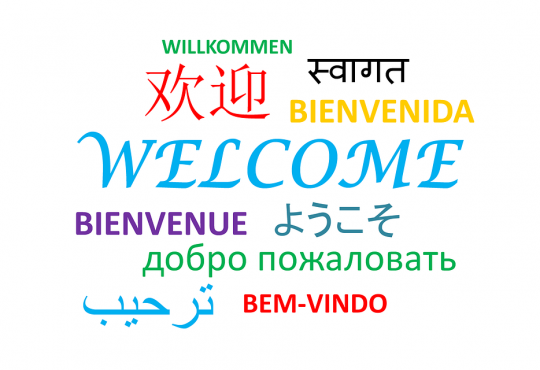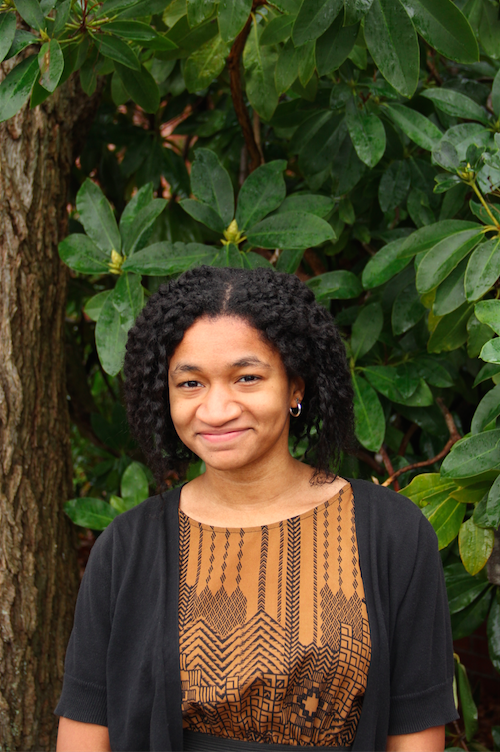Labels are very important to the queer community. Having been denied the privilege of “normality” that cis-hetero people are granted as a matter of course, marginalized groups cling to labels in order to carve out a loving niche for themselves and others like them in an otherwise hostile environment that could not care less about their sense of belonging.
And so, what is normally considered to be a divisive action (labeling, finger-pointing, etc.) actually creates opportunities for building community and safer, more inclusive spaces.
Last Saturday, I attended the annual Honors Conference hosted by Pacific Lutheran University, one such inclusive space for the academically inclined (socially awkward) college nerds, and was intrigued by PLU senior Erin Parks’s rather subjective thesis presentation entitled, “Writing Center Consultations and PFLAG Meetings: A Reflection and Analysis of My Unearned Privilege.”
The first slide was a screenshot of her Tumblr blog highlighting the blog’s short bio section which read, “[name], 22, Student. Lesbian. I want to be a spy when I grow up.”
Drawing on her experiences as an English and Women’s Studies major, Parks then proceeded to give an outstanding, courageous analysis of her bio and how it applies to her academic, social and professional life as a tutor at the PLU learning center.
Parks’s Tumblr bio reflects that, “I may be a woman and a lesbian, which are not considered to be ‘groups’ of privilege, but I am white, super white, in fact, as you can see from the picture taken of my brother and me above the bio section. I am a student, so I have the resources to finance my higher education. Perhaps most significantly (and what is not explicitly stated here) is that I identify with the gender I was born with. These are my privileges, and although I have always claimed the “lesbian” moniker as a source of personal pride, I know that it also means that I am a part of a vibrant [queer positive] community where I know that both my sexual orientation and my unique identity will be understood and appreciated without my having to say anything to explain or defend myself,” she said during the presentation.
Although Tumblr may have some growing pains when it comes to creating inclusive spaces (the oft-ridiculed abundance of “trigger warning” posts and their backlash is evidence of this), the microblogging platform most known for its fandom, cats and NSFW tags is moving towards embodying the kind of “privileged” community referenced in Parks’s presentation.
Even the shyest user is only a hashtag search away from solid, established networks of intelligent, often highly educated bloggers (Wikipedia reports that most users are college-aged women and teens under the age of 25).
Of course, as most Tumblr blogs are run by native English speakers, using the platform also raises interesting questions about communication and intelligibility, which is far more fundamental to how these communities aggregate than sharing a single or multiple marginalized affiliations and identities.
Throughout the presentation and in the Q & A session that followed, Parks addressed this issue and also articulated how speaking a “language of privilege” like English applies to pedagogy and other areas of academic interest.
As a native English speaker who helps non-native English speakers craft their essays in the PLU writing center, she witnesses the sobering reality of the privileges given speakers of English and the privileges that, as a mostly monolingual culture, we dismiss.
Paul Kidder, the Seattle University Director of the Honors Program who moderated the session, noted that until recently even professors were baffled by students with a beginner-level English language skill set.
“We asked ourselves, ‘How the heck did this kid get into college? They can’t write. Now we’re starting to know better,” he said.
With so many different Englishes spoken worldwide and so many different modes of expression available to us now, be it from Twitter, Youtube, Tumblr or any other platform with its own stylistic conventions or “codes,” it should come as no surprise that more and more people insist on separating a speaker or writer’s intellectual capabilities from the current status of their language acquisition.
Proper grammatical constructions and correct orthography are only some of the instances where education becomes a question of privilege.
I used to find it very difficult not to judge the people who make “you’re/your” and “they’re/there/their” mistakes, whereas I now see the mistakes as a function of the haste with which the sentence was written.
Luckily for me and my fellow twitchy grammar nerds, the very aspects of internet culture that encourage these sorts of mistakes (especially considering that many users are browsing on their phones) has also normalized them, often with hilarious and intriguing results. (Blame the Internet cats.)
What Parks’s presentation and the rhetoric of privilege ultimately emphasizes is the need for the “privileged” to acknowledge their privileges as a product of real-life circumstances that favors their own existence over that of an Other.
We should be aware that our privileges may in fact exclude us from certain dialogues such as those on gender, sexual orientation, race, feminism etc. that neither want nor need our apologies to be legitimate.
After the presentations were over, I realized that the most telling and most heartening thing about the presentation was not even stated, which was the silent acceptance and approval it merited from a diverse peer group.
Those of us from the so-called low attention span “Internet generation” are more aware of difference, and are less threatened by its influence than were past generations.
Those with privileges are progressing in terms of both their understanding of their privileges and their responsibility to those with less. Let’s hope that they can continue to do so.



